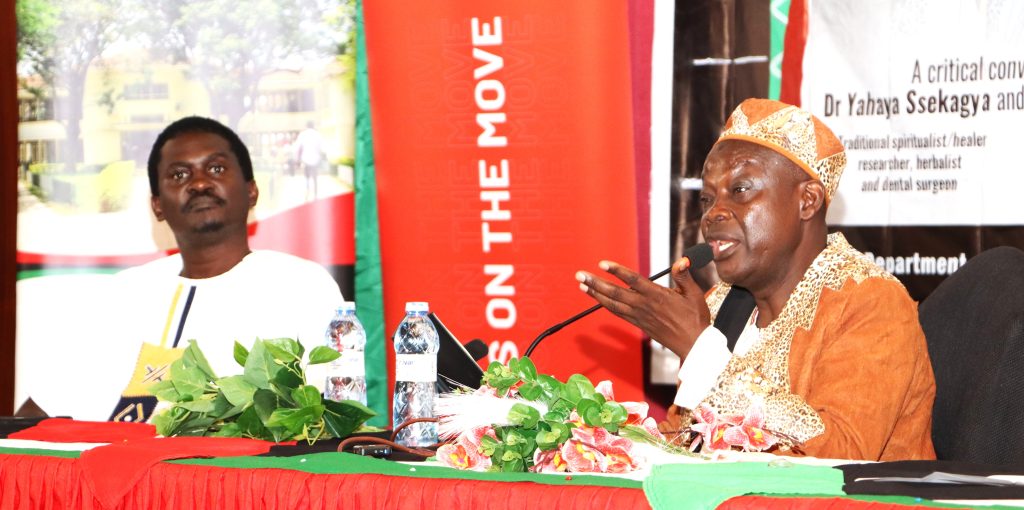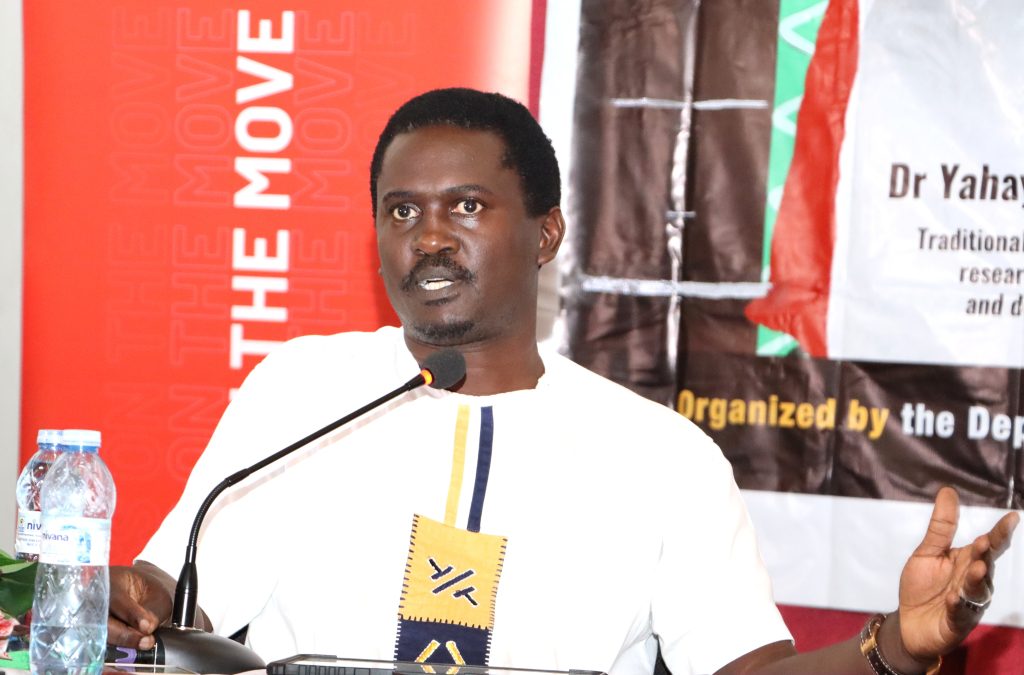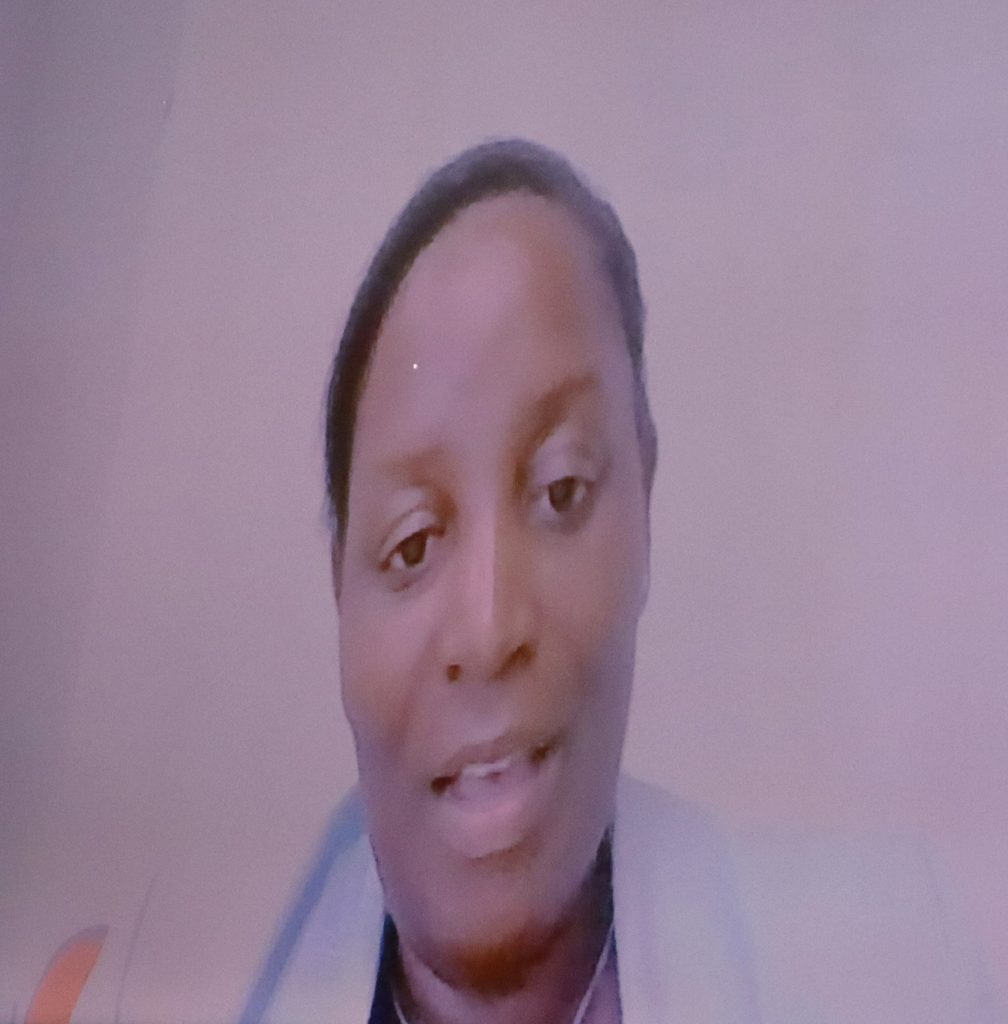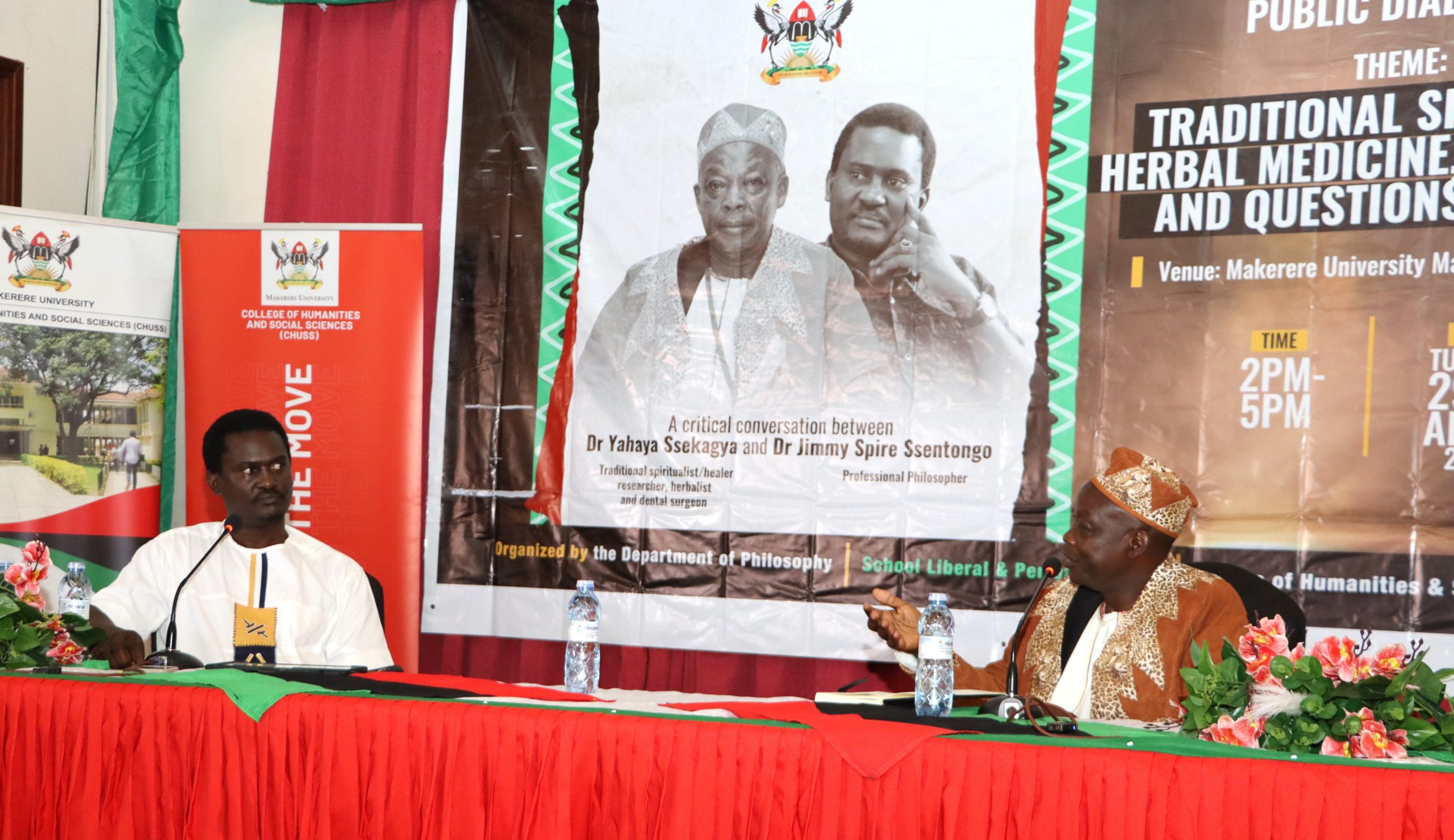In one of the most intellectually provocative events in recent memory, over 2,000 participants—online and in person gathered at Makerere University on Thursday for a historic public dialogue titled “Traditional Spirituality, Herbal Medicine, Witchcraft and Questions of Truth.” The forum, hosted by the College of Humanities and Social Sciences (CHUSS), drew academics, students, researchers, spiritual practitioners, and members of the public to explore issues often considered taboo in formal education. By
2:00 pm, the College of Engineering, Design, Art and Technology’s Conference Hall was filled beyond capacity, forcing latecomers to seek alternative venues or follow the conversation through livestreams. Zoom was capped at 500 users before the official start, while over 1,000 more followed via YouTube. The dialogue extended into the evening, with audiences riveted for more than five hours.
Clash of Paradigms: Philosophy Meets Spiritual Practice
At the heart of the event were two divergent but deeply respected voices: Dr. Jimmy Spire Ssentongo, philosopher, ethicist, and renowned cartoonist, and Dr. Yahaya Hills Kagali Sekagya, a traditional spiritualist, herbalist, and trained dental surgeon with a PhD in Public Health. Sekagya also studied Law.
Decolonizing Knowledge and Defending Indigenous Science
Dr. Sekagya, Director of PROMETRA Uganda and a global voice in traditional medicine, provided a nuanced defense of African spirituality and indigenous healing practices. Moving fluently between biomedical terminology and metaphysical concepts, he highlighted the depth and legitimacy of knowledge embedded in African cosmologies.

Although often judged by his appearance—he wore a spiritual robe during the event—his academic and medical credentials challenged stereotypes about traditional healers. Many who initially dismissed Sekagya as a “witch” based solely on his attire, were shocked upon hearing of his scientific training.
A Dialogue That Defied Boundaries
Their dialogue dissected the boundaries between indigenous healing systems, spiritual worldviews, modern science, and Western rationalism. The discussion traversed numerous academic and epistemological fields—philosophy, sociology, engineering, religion, psychology, and medicine—emphasizing that complex issues such as truth and healing cannot be understood through isolated disciplines. Both speakers called for an integrative approach to knowledge that includes the arts, humanities, and traditional sciences alongside STEM.
The key take away was that, “Knowledge is not confined to university departments. We need philosophy to understand medicine, and we need spirituality to understand psychology. The human experience is too complex for a single lens.”
Dr. Jimmy Spire Ssentongo: “The More You Know, the More Knowledge Humbles You”
Dr. Jimmy Spire Ssentongo delivered a powerful address on the necessity of openness, intellectual humility, and epistemic justice . He was gave the motivation behind hosting the public dialogue interrogating African spirituality, herbal medicine, and the boundaries of science.
Dr. Ssentongo opened with a moment of synchronicity involving the name “Augustine,” moving into a parable about Saint Augustine and the mystery of divine knowledge. He used this story to underline a key point: that human understanding is always partial, and that true wisdom begins with acknowledging how little we truly know.

“We always want to imagine that we know the world so well,” he said. “But we fail to acknowledge that the world is so complex. There are more things than we can ever know.”
Drawing from Socrates’ declaration—“I know that I don’t know”—Ssentongo urged fellow academics and participants to adopt a humble posture toward knowledge, rejecting the arrogance that comes with narrow-mindedness or disciplinary silos.
He addressed the backlash surrounding the event, including accusations of promoting witchcraft, with sharp critique and clarity:
“You don’t have to agree with something to understand it… It’s our unwillingness to engage that empowers ignorance and exploitation—whether in herbal medicine or religion.”
Ssentongo challenged the binary thinking that dominates academia and social discourse, particularly how indigenous knowledge is marginalized through labels like “alternative medicine.”
“That language is not innocent,” he warned. “It has already created the main—the authentic—and the alternative. And we keep building these binaries which are very detrimental to understanding.”
He lamented the politics of knowledge production, pointing out that powerful interests from pharmaceutical companies to religious establishments often dictate what is recognized as legitimate knowledge, thereby stifling critical inquiry into African spiritual and healing practices.
In a moment of warmth and humility, Ssentongo lauded guest speaker Dr. Sekagya for his depth of knowledge and gracious composure, despite being prematurely judged based on appearance:
“We profile people based on what’s already in our minds. When you do that, you build a wall that blocks understanding.”
He closed with gratitude to the organizing teams, university leadership, and the patient audience, reminding all that the session’s six-hour length was testament to the power of curiosity, intellectual freedom, and dialogue.
“The more you know, the more knowledge humbles you,” he said. “And I love humble people—that’s the sign of true education.”
Principal Nkabala Applauds Groundbreaking Dialogue on Truth and Decolonisation
While closing the dialogue, Associate Professor Helen Nambalirwa Nkabala, Principal of the College of Humanities and Social Sciences (CHUSS), reflected on the boldness of the topic, Prof. Nkabala admitted initial concerns over whether enough publicity had been done for such a sensitive conversation. But her concerns quickly gave way to admiration for the depth and courage of the discussions.
“This is the very reason the college exists,” she said. “We are not afraid of speaking about the things many are afraid to talk about.”
She praised the dialogue for achieving the core mission of the Humanities and Social Sciences: to broaden perspectives, enhance global awareness, and deepen our understanding of human behaviour. With confidence, she noted that all participants—whether in-person or online—had walked away transformed in their thinking.

Prof. Nkabala commended Dr. Sekagya for integrating science with cultural and spiritual frameworks, and Dr. Spire Sentongo for initiating a conversation that challenged binaries and inspired creativity. She mentioned emerging ideas such as “deep green spirituality” and renewed interest in electromagnetics, highlighting how the discussion had sparked innovation beyond the humanities.
“This shows that the conversation we have had has really inspired people—and they are becoming more innovative than they would have wanted,” she remarked.
With gratitude, she acknowledged the CHUSS team, Makerere University management and all participants. Her message was clear: this was not a one-off event, but a starting point in a series of transformative engagements.
“Just watch this space,” she said, promising more impactful dialogues to come.
She then invited Deputy Principal Assoc. Prof. Eric Awich Ochen to offer closing sentiments on behalf of the college, adding a “physical touch” to the collective appreciation for such a powerful and memorable gathering.

